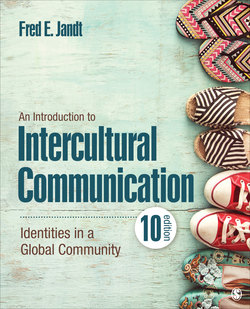Читать книгу An Introduction to Intercultural Communication - Fred E. Jandt - Страница 139
На сайте Литреса книга снята с продажи.
Broadcast Media and the Internet
ОглавлениеAll broadcast media in China are owned by, or affiliated with, the Communist Party of China or a government agency. The Publicity Department of the Communist Party enforces media censorship (Central Intelligence Agency, 2020). The first real Internet connection to China was established in 1994 when the Stanford Linear Accelerator Center connected with the Institute of High Energy Physics in Beijing. The government encourages the Internet for education and business. Internet usage in China surged from 40 million in 2002 to 100 million in 2005 to 731 million in 2016—more than any other country—which is about 53% of the country’s population.
But the Internet in China is not borderless. China’s government promotes “Internet sovereignty,” rejecting the idea that a nation’s virtual borders should be less meaningful than its physical borders. China has unsuccessfully promoted its vision of Internet sovereignty to other countries.
China’s regulation of the Internet has become commonly referred to as “the Great Firewall of China,” which limits and censors the Internet. Google was first blocked in 2002. YouTube was blocked after unrest in Tibet in 2008. Facebook and Twitter were blocked after riots in Xinjiang in 2009. Yet the government permits a small window on the Internet through which a small number of largely elite English-speaking users can access the Internet through virtual private networks but at very slow browsing speed. China continues to block thousands of websites and monitor individuals’ Internet access. Some contend the censorship is for economic protectionism as well as social control.
The three major “kingdoms” of China’s Internet today are Baidu, Alibaba, and Tencent. Baidu (百度) is the world’s largest Chinese Internet search engine, but it differs significantly from Google. Jiang (2014) compared the two search engines and demonstrated that there is minimal overlap and little ranking similarity between Baidu’s and Google’s results. Jiang argues that search engines can be designed to serve political regimes, shaping the perception of the world and arbitrarily creating social realities.
Former U.S. secretary of state Hillary Clinton (2010), in a major speech, drew an analogy between the Berlin Wall and restricted access to the Internet. Chinese reaction to her speech was that the United States uses the Internet as a means to create worldwide hegemony based on Western values. The People’s Daily newspaper compared Google to the opium traders of the 19th century (Demick, 2011).
The United States has charged that many hacking attacks on U.S. companies and government sites originate in China. The personal data of millions of U.S. government employees have been hacked, and state-sponsored cybertheft has benefited Chinese companies. Foreign Minister Wang Yi responded that Chinese websites have been hacked from the United States.
China’s leader, Xi Jinping, predicted in 2013 that China would become the chief military power in the Asia-Pacific region by 2049. He spoke of the “China Dream” of a revival of the Chinese nation with a prosperous country and a strong military. Henry Kissinger was President Nixon’s national security adviser and then secretary of state to Presidents Nixon and Ford. During that service, his efforts contributed to formal diplomatic relations with China. Kissinger (2011) recently pointed out the critical importance of the United States and China remaining engaged, even if their interests diverge. Paraphrasing former general secretary of the Chinese Communist Party Jiang Zemin, Kissinger said the two countries are “too large to be dominated, too special to be transformed and too necessary to each other to be able to afford isolation” (p. 487).
